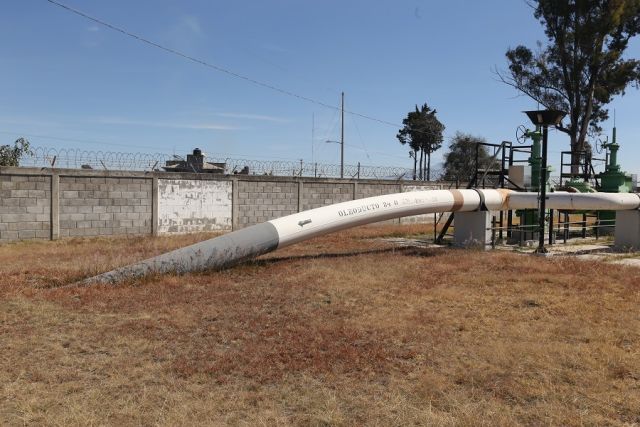
TC Energy reported that its Canadian Coastal GasLink pipeline is mechanically complete, ahead of the company’s December target. (Source: Shutterstock.com)
As TC Energy nears the finish line of a major pipeline project, executives said on Nov. 8 the company was open to raising cash through joint ventures on other company projects in Canada and Mexico next year.
The Canadian company has planned a divesture program with a goal of CA$3 billion (US $2.177 billion) in 2024. At its third-quarter earnings call, company leaders said TC Energy plans to focus potential sells in Mexico and its home country, continuing a program to eliminate debt and bring down costs.
“Part of that program may include some discrete asset sales in the U.S.,” said Francois Poirier, TC Energy’s president and CEO. “But in terms of entering into joint ventures, as we have with GIP on our Columbia assets, we can look to Canadian assets and our Mexico assets.”
In July, the company divested 40% interest in its Columbia Gas and Columbia Gulf systems to Global Infrastructure Partners for CA$5.3 billion in cash (US $3.846 billion). The systems include more than 15,000 miles of natural gas pipelines in the U.S. At the time, the company indicated that it would consider selling off its oil pipelines and focus on natural gas transmission.
For 2024, executives said the aim is to sell multiple smaller assets to hit the target.
“I do believe that, since we are proceeding with multiple transactions to achieve the balance of the CA$3 billion, that smaller bundles will garner more competitive tension,” Poirier said.
In Mexico, TC Energy placed the lateral section of the 261-mile Villa de Reyes natural gas pipeline into service, Poirier said. The southern section of the pipeline, expected to have a capacity of 886 MMcf/d, will begin service in the second half of 2024.
In Canada, after five years of construction, the Coastal GasLink pipeline is mechanically complete and ahead of the company’s December target, Poirier said. The pipeline is Canada’s first to the West Coast in 70 years and will serve global markets.
The 416-mile line stretches east to west across British Columbia, terminating at the port city of Kitimat. The pipeline will have a capacity of 2.1 Bcf/d with the potential to deliver up to 5 Bcf/d with additional compression, according to TC Energy.
All pipes on the project have been welded, coated and placed, Poirier said, and all 800 water crossings are complete. The next steps are pumping natural gas into the line and commissioning the system. The project cost is estimated at CA$14.5 billion (US $10.52 billion).
The project was originally budgeted at less than half the current price tag of CA$6.6 billion (US $4.78 billion). TC Energy executives blamed the increase on a supply shortage, adverse weather and the difficulty of finding skilled workers.
The pipeline is owned by private equity firm KKR & Co., Alberta Investment Management and TC Energy. Joel Hunter, TC Energy’s executive vice president and CFO, said TC’s stake is 35%. The company does not expect the pipeline to make a large contribution to EBITDA over the next year.
“The key was really to get the project completed on schedule with the revised budget,” Hunter said. “But as we look at the amount of incremental equity income that we would generate from this investment, it’s not going to be that significant.”
For 2023’s third quarter, TC Energy reported an overall income loss of CA$197 million (US $142.89 million). The company gained on EBITDA, reporting CA$2.6 billion with CA$2.5 billion over the same period in 2022.
